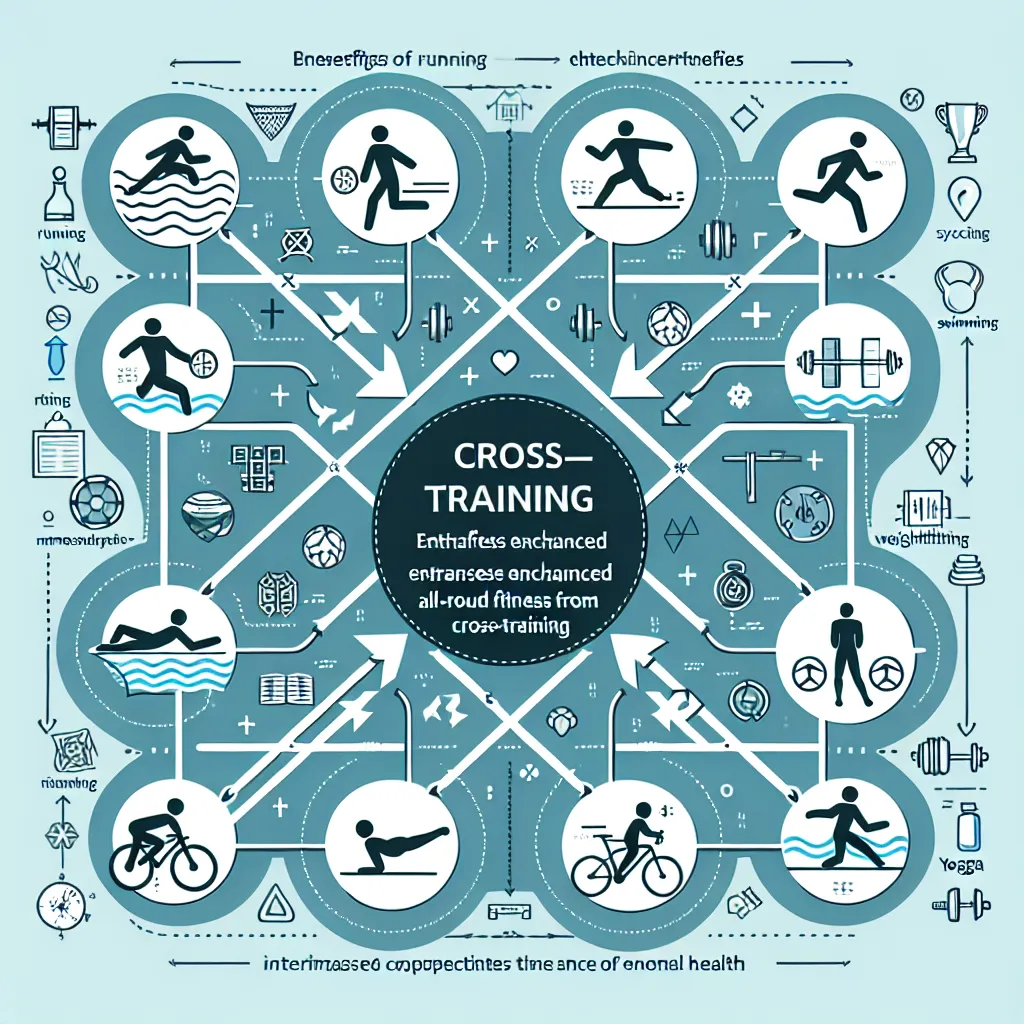Cross-training is a vital concept in the world of sports and fitness, and understanding its benefits can significantly enhance your IELTS vocabulary. Let’s dive into this term and explore how it can boost your language skills for the IELTS exam.
Definition and Pronunciation
Cross-training (noun): /krɒs ˈtreɪnɪŋ/
A training regimen that involves engaging in various types of exercise or sports to improve overall fitness and performance.

Context and Usage
Examples in Context
-
Cross-training has become increasingly popular among athletes seeking to improve their overall performance and reduce the risk of injury.
Analysis: This sentence introduces the concept of cross-training and its growing popularity, emphasizing its benefits for athletes.
-
The marathon runner incorporated swimming and cycling into her cross-training routine to enhance her cardiovascular endurance.
Analysis: This example illustrates how cross-training can be applied in a specific sport (marathon running) by including complementary activities.
-
Many fitness experts recommend cross-training as a way to prevent boredom and plateaus in workout routines.
Analysis: This sentence highlights another benefit of cross-training: maintaining motivation and continuous improvement in fitness.
-
The triathlon training program emphasizes the importance of cross-training to excel in multiple disciplines.
Analysis: This example shows how cross-training is essential in multidisciplinary sports like triathlons.
-
By implementing a cross-training regimen, the football team saw a significant reduction in overuse injuries during the season.
Analysis: This sentence demonstrates the injury prevention aspect of cross-training in team sports.
Common Contexts
Cross-training is frequently discussed in:
- Sports training programs
- Fitness and wellness articles
- Physical therapy and rehabilitation
- Corporate wellness initiatives
- Military and law enforcement training
Vocabulary Analysis
Word Structure
- Cross (prefix): Indicates a combination or interaction between different elements
- Training (root): The action of teaching or developing a particular skill or behavior
Synonyms and Antonyms
Synonyms:
- Cross-disciplinary training /krɒs ˌdɪsəˈplɪnəri ˈtreɪnɪŋ/ (noun): Training that involves multiple disciplines or areas of expertise.
- Multi-sport training /ˌmʌlti spɔːt ˈtreɪnɪŋ/ (noun): Training that incorporates various sports or physical activities.
- Varied exercise regimen /ˈveərid ˈeksəsaɪz ˈredʒɪmən/ (noun phrase): A workout plan that includes different types of exercises.
Antonyms:
- Specialized training /ˈspeʃəlaɪzd ˈtreɪnɪŋ/ (noun): Training focused on a single sport or skill.
- Monotraining /ˈmɒnəʊˌtreɪnɪŋ/ (noun): Engaging in only one type of exercise or training method.
Memorization Techniques
Mind Map
Create a mind map with “Cross-training” at the center, branching out to:
- Benefits (e.g., injury prevention, improved performance)
- Activities (e.g., running, swimming, weightlifting)
- Applications (e.g., sports, fitness, rehabilitation)
- Related concepts (e.g., periodization, lateral movement)
Mnemonic Story
Imagine a “cross” made of different sports equipment. Picture yourself crossing from one end to the other, trying each sport and feeling stronger with each step. This visual representation can help you remember the diverse nature of cross-training and its benefits.
Practice Exercises
-
Write a paragraph describing the benefits of cross-training for a professional athlete preparing for a major competition.
-
Create a dialogue between a fitness trainer and a client, explaining why cross-training is recommended for their fitness goals.
-
Compare and contrast cross-training with specialized training in a short essay, discussing the advantages and disadvantages of each approach.
Conclusion
Understanding the concept of cross-training and its benefits not only enriches your IELTS vocabulary but also provides valuable insights into modern fitness practices. By incorporating this term and its related vocabulary into your language repertoire, you’ll be better equipped to discuss sports, fitness, and health topics in the IELTS exam.
Remember to practice using “cross-training” and its associated terms in various contexts to solidify your understanding. Consider how you might apply cross-training principles to your own IELTS preparation, mixing different study methods to enhance your overall language skills.
We encourage you to share your experiences with cross-training or any questions you may have about using this term in the IELTS exam in the comments section below. How might you incorporate cross-training principles into your language learning strategy?